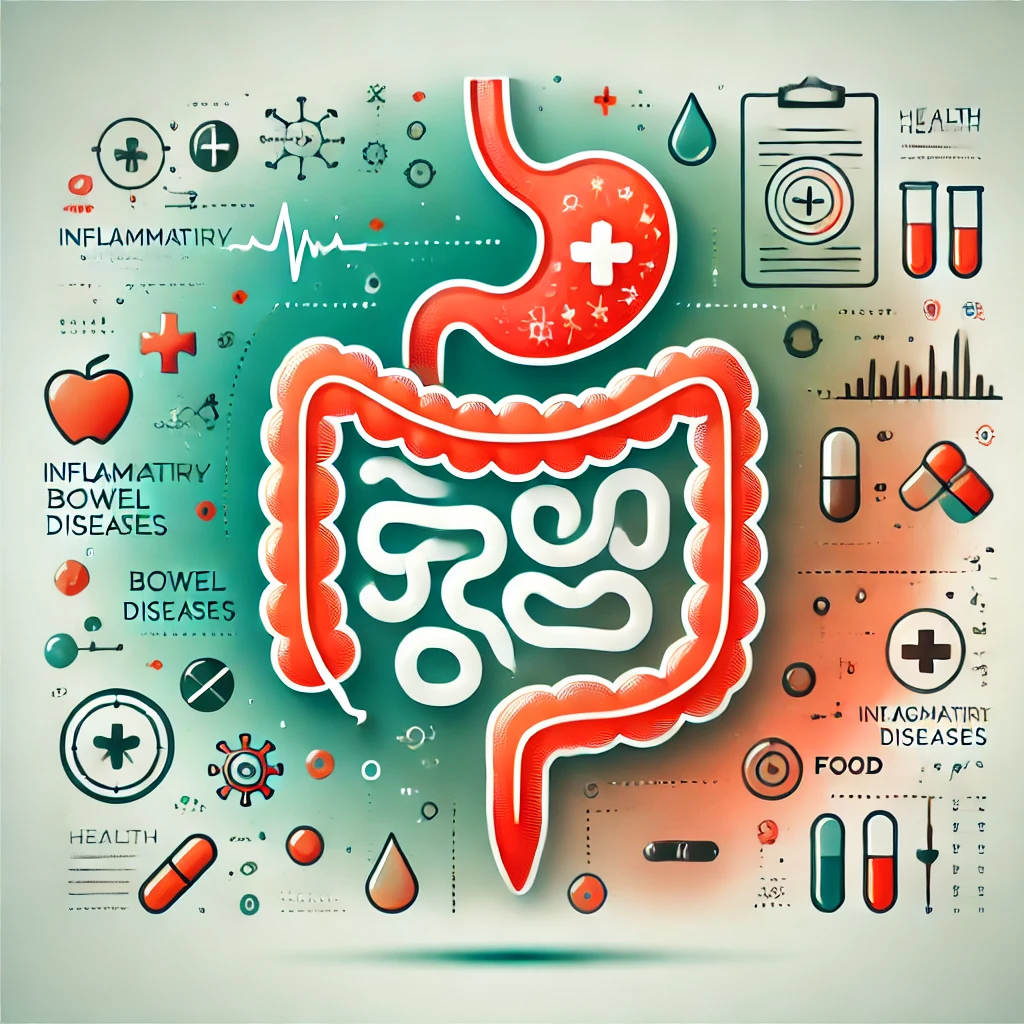Our Services
- Diabetes Mellitus
- Hypertension
- Osteoporosis
- Inflammatory Bowel Diseases
- Hypothyroidism and Endocrine Diseases
- Chronic Respiratory Diseases
- Chronic Neurological Diseases
- Chronic Liver Diseases
- Chronic Kidney Diseases
- Cardiovascular Diseases
- Arthritis and Rheumatic Diseases
- Confidential STD Testing & Treatment
- Women’s Health Screenings
- Men’s Health Screenings
- Obesity
- Vitamin Infusions
- Weight Management

Inflammatory Bowel Diseases (IBD)
Inflammatory Bowel Diseases (IBD) are chronic conditions that cause inflammation in the digestive tract, severely impacting digestion, nutrient absorption, and overall well-being. The two primary types are Crohn’s disease and ulcerative colitis.
At our clinic, we provide comprehensive follow-ups and personalized treatment plans to manage flare-ups, reduce inflammation, and prevent long-term complications.
Types of Inflammatory Bowel Diseases
1. Crohn’s Disease
- Affects any part of the gastrointestinal (GI) tract, from mouth to anus.
- Inflammation extends deep into the intestinal walls.
- Symptoms: Persistent diarrhea, abdominal pain, weight loss, fatigue.
- Complications: Fistulas, strictures, malnutrition.
2. Ulcerative Colitis
- Affects only the colon (large intestine) and rectum.
- Inflammation is limited to the inner lining of the colon.
- Symptoms: Bloody diarrhea, abdominal cramps, urgency to defecate, fatigue.
- Complications: Colon cancer risk, severe dehydration, toxic megacolon.
Symptoms of Inflammatory Bowel Diseases
Symptoms vary but often include:
- Chronic diarrhea (sometimes with blood or mucus).
- Severe abdominal pain & cramping.
- Unintentional weight loss & loss of appetite.
- Fatigue & weakness due to malabsorption.
- Frequent bowel urgency & discomfort.
IBD Management & Treatment
1. Early Diagnosis & Monitoring
- Blood tests to check for inflammation markers (CRP, ESR).
- Stool tests to detect infections and gut inflammation.
- Colonoscopy & endoscopy for accurate diagnosis.
- Imaging (CT, MRI) for complications like strictures or abscesses.
2. Medication Therapy
- Anti-inflammatory drugs (5-ASA, corticosteroids) to reduce flare-ups.
- Immunosuppressants & biologics to control immune response.
- Antibiotics for infections and complications.
- Pain relievers & antidiarrheal medications for symptom relief.
3. Nutritional & Dietary Management
- Low-fiber diets during flare-ups to ease digestion.
- Nutrient-dense foods to prevent malnutrition.
- Probiotics & gut-friendly supplements for digestive support.
- Avoiding trigger foods (dairy, spicy foods, high-fat meals).
4. Lifestyle & Stress Management
- Stress reduction techniques (meditation, yoga) to prevent flares.
- Regular exercise to improve digestion and overall health.
- Adequate hydration to prevent dehydration from diarrhea.
5. Advanced Treatment Options
- Surgical interventions (for severe cases):
- Bowel resection for Crohn’s complications.
- Colectomy (removal of colon) for severe ulcerative colitis.
Complications of Untreated IBD
Without proper management, IBD can lead to:
- Bowel obstruction from strictures.
- Fistulas & abscesses in Crohn’s disease.
- Severe malnutrition & weight loss.
- Increased risk of colorectal cancer.
- Toxic megacolon (life-threatening colon enlargement).
Advantage IBD Care
We offer a comprehensive inflammatory bowel disease management program, including:
✅ Personalized treatment plans based on disease severity.
✅ Regular screenings & follow-ups to monitor disease progression.
✅ Advanced medication & biologic therapies for long-term control.
✅ Nutritional counseling to optimize gut health.
✅ Lifestyle coaching to prevent flare-ups and maintain well-being.


Health Tips & Info
- Follow a gut-friendly diet tailored to your needs.
- Manage stress levels to reduce flare frequency.
- Stay hydrated and avoid dehydration from diarrhea.
- Monitor symptoms & seek early treatment to prevent complications.
- Stay up to date with medical follow-ups to adjust treatment as needed.